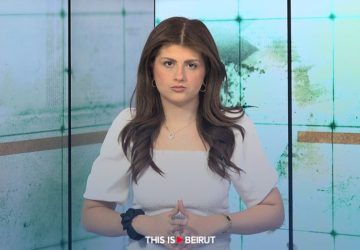Shiite religious authority Ali al-Amin emphasized that Hezbollah cannot represent all Shiites and underscored the harm its policies have inflicted on both Shiites and Lebanon, in an interview with Independent Arabia. He also touched upon the desires of Lebanese Shiites to create a fair and equitable state.
On his opposition to the relationship between Hezbollah and Iran, he said, “We rejected their project, which relies on the survival of weapons outside state institutions and is contrary to the state’s sole authority in issues of war, peace, security and sovereignty over its land and people.”
He also added, “We must realize that the participation of some Shiite factions in politics does not reflect the will of the Shiites as a whole.” The article also noted that Amin highlighted how Hezbollah’s policies, associated with the Iranian agenda, have harmed the Shiite community along with national allies, and have drawn Lebanon into the Iranian sphere, interfering in the affairs of Arab countries.
Amin also conveyed his opposition to Hezbollah’s involvement in the Gaza war, believing “that this war does not benefit the people of Gaza and harms Lebanon.”
He stressed that “Lebanon cannot be alone in this war for which it is unprepared.” “Lebanon cannot and should not bear the consequences of these wars alone,” he added. He also reiterated his demand for “the deployment of the Lebanese army to the south, along with international emergency forces.”
When addressing the possibility of forming a Shiite opposition coalition in Lebanon, Amin revealed that this opportunity is viable, given the emergence of specific groups in the political arena. He also emphasized that the Shiite community encounters obstacles in creating an authentic opposition, due to inadequate protection of their rights to express their views openly.
He commented, “The state project and the rejection of war were the dominant opinions in the sect, but when the war occurred and the duo’s (Hezbollah and Amal) power intensified, people’s interests were linked to those in control, so these voices decreased. And any other voice calling for the state project and the integration of weapons outside the state with the state project was stifled.”
Regarding Iran’s influence on Shiite citizens in various Arab countries, Amin pointed out that “there is a large part of Shiites who reject this vision.”





